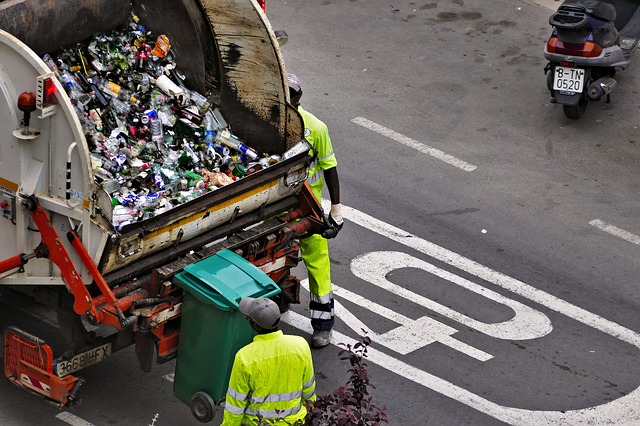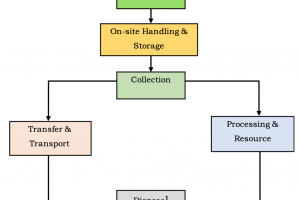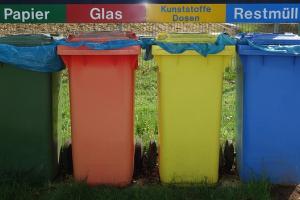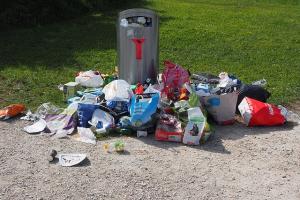Types of Solid Waste Collection Systems

For the successful waste minimization programs, the waste must be collected appropriately and be transported to the recycling and recovery facilities or disposal areas. There must be efficient waste collection methods and good programs for waste collection because they affect the success of waste management programs significantly.
In general, there is a lack of organization and planning in waste management due to insufficient information about regulations and financial restrictions in many developing countries. In developing countries local authorities spend approximately 75-95% of their revenue on collection and the balance on disposal but can only collect almost 50-70 % of municipal solid wastes. The collection of solid waste can be very difficult in municipalities because of the waste collection resources which are unorganized and lacking of a systematical method for waste collection. Since the population in the municipalities and the number of manufacturing plants increase rapidly, the logistical problems related to waste collection become more complicated. Collection of solid waste doesn't guarantee the success of solid waste management programs. After collection of solid waste, appropriate activities must be applied.
Types of Solid Waste Collection Systems
Essentially there are up to five basic alternatives for collection systems, depending upon the level of effort required from the waste generators. These are described below:
Community Bins
This is by far the most common collection method in all developing countries, particularly in Pakistan. The planning and organization of waste collection is greatly simplified by the use of large communal storage sites or bins. Although the use of large communal sites may seem to be a fairly inexpensive and simple solution, it may transfer much of the burden of waste collection onto the street cleaning service and actually increase total costs. This may be due to:
- Indiscriminate dumping of waste in streets and drains by residents who have to walk too far to communal sites or those who refuse to co-operate;
- Humans and animals scavenging from these sites may spread waste around the area of the site which then has to be swept and re-collected;
- Waste may be scattered during unloading of bins and carts and during loading of larger secondary collection vehicles.
It is less expensive to collect waste directly from a residence or business than to sweep it up from the streets. The use of large, widely spaced communal storage sites generally fails because the demand placed on the waste generator goes beyond his willingness to cooperate. If communal storage sites are going to be used, the storage points should be at intervals convenient to the generators and should be designed so that waste is deposited into containers at that site to facilitate secondary collection. This is often a problem in densely constructed areas, where finding an optimal space for large communal bins could pose a problem.
Block collection
This is essentially the same system as above with the exception that no community bins are provided. Instead, a collection vehicle travels a regular route at an agreed frequency (two to three times per week or daily, to a set schedule). The vehicle stops at all street intersections and a bell is rung. At this signal the residents of all the streets leading from that intersection bring their waste containers to the vehicle and hand them to the crew to be emptied. A number of variations to this scheme may be operated, but the common theme is that householders are requested to use waste containers (owner containers) which are kept in the house and brought out to the waste collectors at prearranged and scheduled times. In some cases, standardized owner containers are provided by the municipality, although the cost implications of this standardization need to be carefully considered.
Curbside collection
This system of collection requires a regular service and a fairly precise schedule. Residents must place their containers (set-out containers) on the curb before the time of collection and remove the containers after they have been emptied. It is important that the containers are of a standard type. Observations in local areas revealed lack of use of any kind of containers, instead it is likely that wastes will be set out in any type of container such as plastic bags, baskets, cardboard boxes, or even in piles. Under these conditions the wastes may be scattered by animals and wind, thus making the collection process very inefficient. Some of the problems commonly encountered with curbside collection include spilling of the contents of the containers to allow sorting by waste pickers, the containers may either be stolen, overturned by animals, or left on the street for long periods of time.
Door to door collection
In this system the householder does offers minimal participation in the collection process. The collector rings a bell or knocks at the door of each house and waits for an occupant to bring the waste to the door. Often the cart makes enough noise for the residents to be ready with their containers on arrival. The collector collects the waste container from each house, carries it to the vehicle, empties it and returns it to the house. This system is costly in terms of labour because of the high proportion of time spent walking from one dwelling to the next. However, in low-income countries where labour is relatively inexpensive, this may form a satisfactory system. This is, in some ways, a combination of several of the basic systems described above.
Contracted or Delegated Service
Residential societies or markets (or a union of shopkeepers in a market) hire firms (or municipality with municipal facilities) who arrange collection schedules and charges with customers. Municipalities often license private operators and may designate collection areas to encourage collection efficiencies, by creating a competition for efficient and economical solid waste collection.
Credits: GIZ - DEUTSCHE GESELLSCHAFT FÜR INTERNATIONALE ZUSAMMENARBEIT 












